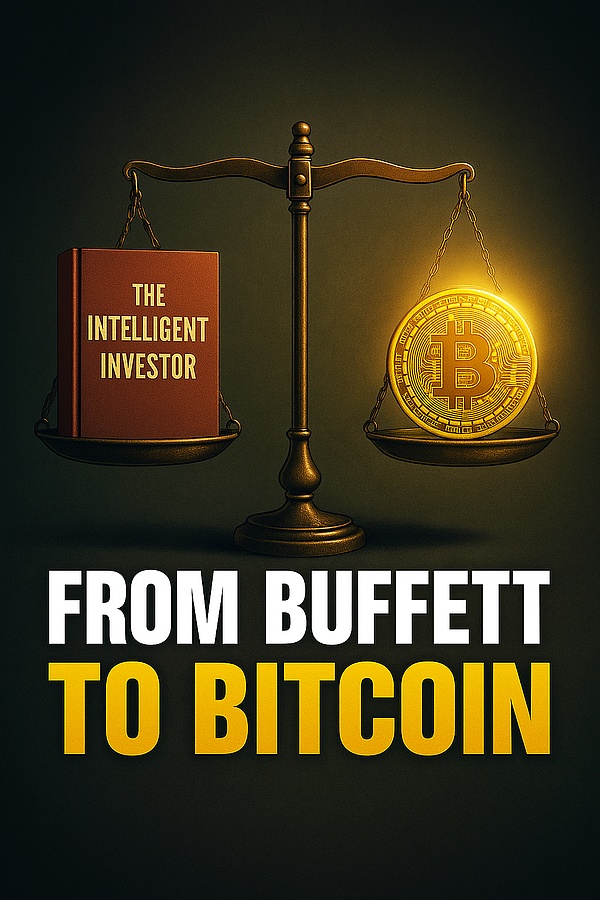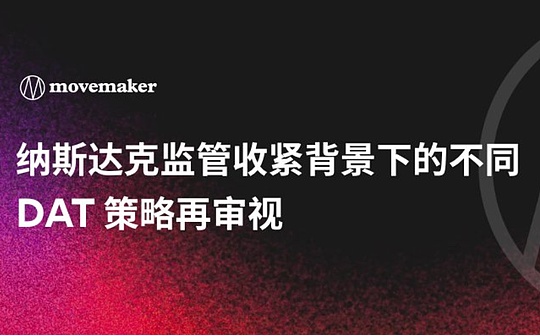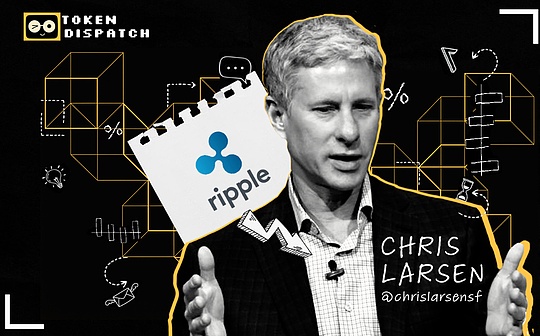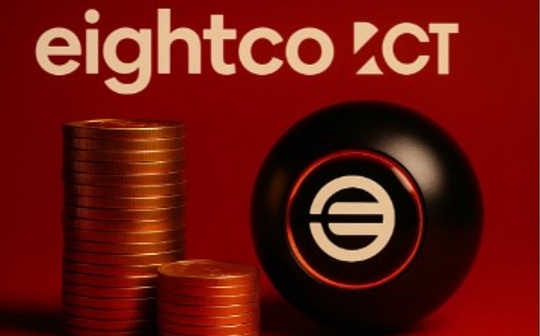
Author: Anthony Pompliano, Jeff Park Compiled by: Block unicorn

Introduction: Redefining investment wisdom in a changing world
The investment environment is undergoing profound changes, driven by drastic changes in the global economic structure, technological advances and cultural ideology.A traditional investment framework based on Benjamin Graham’s “Smart Investor” principles has long emphasized disciplined valuation techniques such as discounted cash flow and risk-free rate assumptions.However, while effective in a stable, dollar-dominated world, these approaches are increasingly being challenged under a new paradigm of external events, geopolitical changes and ideological beliefs playing a larger role in shaping market outcomes.This article explores a worldview that opposes “smart investors” to “ideological investors,” elaborates on their differences, and demonstrates why understanding this framework is crucial to becoming a better market investor.In addition, this article explores innovative concepts of Bitcoin Treasury companies and unique financial strategies to increase their holdings of Bitcoin on the company’s balance sheet without adding additional capital.By integrating these ideas, we reveal how ideological, technological and financial innovation can reshape the future of investment.
Smart Investors and Ideological Investors: A Confrontation between Two World Views
Smart Investors: Newtonian Approach Based on Value
Conceptualized by Benjamin Graham and promoted by Warren Buffett, the “Smart Investor” is based on a disciplined, analytical approach to investment.This worldview relies on basic valuation principles such as discounted cash flow models, normal distribution assumptions, and the concept of risk-free interest rates that are often pegged to the hegemony of the US dollar.It assumes a predictable, modelable world where financial prosperity stems from stable economic structures, such as the Washington consensus that prioritizes free markets and the smallest trade barriers since the 1980s.This framework historically rewards investors who focus on intrinsic value, revenue growth and earnings exceeding expectations, providing a reliable roadmap for navigating in relatively stable markets.
However,This approach is not without limitations.Smart investors’ reliance on predictable models assumes a stable global order that is increasingly under pressure.As mentioned in the blog dialogue, events such as the recent acquisition of 10% of Intel by the U.S. government, marking a divergence in the free market principles on which this worldview relies.These developments show that risk-free interest rates—once once the cornerstone of financial models—are no longer sacred and forced investors to rethink their assumptions.
Ideological Investors: Embrace volatility and belief
In contrast, “ideological investors” operate on the principle of sovereignty priority, prioritizing belief systems over traditional valuation indicators.Such investors recognize that external events—geopolitical changes, policy adjustments, or cultural movements—can dramatically change asset valuations, often in ways that traditional models cannot predict.For example, the sudden tariffs on luxury goods discussed in the conversation could disrupt the industry-wide valuation overnight, making Excel spreadsheets and algorithmic trading less relevant.Ideological investors thrived in a world full of fat-tail risks, with volatility and uncertainty creating opportunities for those with firm beliefs.
This worldview is closely related to three key perspectives: geopolitics, technology, and culture.On the geopolitical side, the decline of the Washington consensus and the rise of the Beijing consensus that emphasizes sovereignty priority over the market mark a shift to ideologically driven investment.In terms of technology, the emergence of artificial intelligence as an ideology – high computing power becomes a currency – is consistent with assets such as Bitcoin that embody decentralized and anti-censorship principles.On the cultural side, the rise in religious beliefs during economic hardships shows that a growing desire for belonging and belief has driven a value-based investment movement where “value” goes beyond cheap stocks and covers deeper beliefs.
Ideological investors also benefit from the rise of retail investment communities.Once considered a lack of coordination and irrelevant retail investor, now plays a significant role through platforms such as Twitter, Reddit and Substack.These communities are able to effectively coordinate, share complex analytics, and act as marketing teams for the companies they support.Unlike institutional investors who prioritize financial indicators, retail investors tend to lump around ideological consistency, amplifying the influence of belief-driven leaders like Elon Musk or Palantir’s Alex Karp.This shift highlights a key difference: smart investors pursue stability, while ideological investors embrace volatility and use beliefs to navigate the rapidly changing world.
Why this framework is crucial to investors
Understanding the binary opposition between smart investors and ideological investors is crucial to the success of modern markets.While traditional methods are still valid for certain assets, they are difficult to explain the growing influence of external shocks—whether tariffs, policy changes or cultural movements—.Investors who stick to outdated models are at risk of missing out on opportunities, because opportunities are being missed in a world increasingly driven by ideology and community sentiment.In contrast, those who adopt the ideological investor mind can leverage fat tail events to align portfolios with assets and leaders that embody strong beliefs.
For example, companies led by leaders with clear, authentic visions, such as Musk or Karp, tend to perform better than those “drawing pie” leaders who avoid taking a stance to please all stakeholders.Retail investors especially favor firm beliefs, while companies that lack clear ideological stances will be punished.By recognizing these trends, investors can better evaluate which companies are prepared for volatile, ideologically driven markets and adjust their position size and holding period accordingly.
In addition, the rise of the retail investor community democratizes market influence and creates opportunities for investors outside the traditional financial system.”Ideological investors” are able to avoid fat tail risks and adapt to community-driven movements, which allows retail investors to compete with institutional investors, thereby leveling the playing field in ways that were unimaginable a decade ago.This framework not only enhances investment decision-making capabilities, but also promotes a more inclusive, belief-oriented way of wealth creation.
Bitcoin Treasury Company: A New Paradigm for Financial Innovation
Bitcoin Treasury Company Concept
Bitcoin Treasury companies are entities that hold Bitcoin as a strategic asset on the balance sheet, which is usually integrated into financial and operational strategies.Unlike traditional companies holding cash or securities, these companies view Bitcoin as a store of value and accountancy unit, using their ideological and technical attributes to enhance shareholder value.This concept is fromThe promotion of MicroStrategy et al. and companies has gained attention as institutions recognize the potential of Bitcoin as a symbol of inflation hedge and decentralized sovereignty.
However, the real innovation lies in not only holding Bitcoin, but increasing its holdings on the balance sheet without raising additional capital.This approach, known as treasury operations, involves using operating revenue to acquire bitcoin, thereby increasing the company’s Bitcoin per share metric.For example, Blue Cotton, Tennessee, funded employee bonuses through Bitcoin mining, showing how business aligns with ideological goals.
Why the treasury operation is unique
The practice of increasing Bitcoin on the balance sheet without external funds is a breakthrough for the following reasons.First, it reduces reliance on costly financing, which tends to dilute shareholder value.By using operating cash flow to buy Bitcoin, businesses can maintain financial discipline while taking full advantage of Bitcoin’s long-term appreciation potential.This strategy is particularly attractive today as traditional earnings-based models are increasingly declining because it fits with the focus of “ideological investors” on belief-driven assets.
Second, Bitcoin financial operations create unique synergies between customers and shareholders.As Jeff Park points out, companies that combine customer bases with shareholder bases, especially those ideologically aligned with Bitcoin, can significantly reduce customer acquisition costs, which is a significant expense for most businesses.For example, a Bitcoin finance company can leverage its ideological consistency to build a loyal customer base and use it as a shareholder community, creating a virtuous cycle of participation and value creation.This model reflects the philosophy of cryptocurrency, where participants are both users and owners of the network, thus fostering a sense of common purpose.
third, Bitcoin as a censorship-resistant, decentralized asset, makes it an ideal choice for fund management in an ideologically driven world.Unlike traditional assets, Bitcoin is not affected by geopolitical tariffs or policy shocks, thus hedging the volatility unique to ideological investors.Its reliance on high computing power further aligns it with the technological ideology of artificial intelligence, positioning Bitcoin as the currency of the future.
Case Studies and Impact
Companies like MicroStrategy set a precedent for Bitcoin treasury strategies to boost shareholder value by accumulating large amounts of Bitcoin holdings.However, small companies like Blue Cotton demonstrate the scalability of this model, showing that businesses of all sizes can integrate Bitcoin into their operations.By mining or using profits to buy Bitcoin, these companies not only strengthen their balance sheets, but also demonstrate ideological consistency to the growing community of Bitcoin supporters.
This model has far-reaching significance.For investors, Bitcoin Treasury companies represent a new asset class that combines financial innovation with ideological beliefs.These companies have unique advantages in volatile markets because they focus on Bitcoin, aligning with ideological investors’ preferences for assets that embody strong beliefs.For society, the rise of Bitcoin treasury companies may democratize wealth creation as retail investors and clients gain ownership of businesses that reflect their values.
Conclusion: Lead the future with ideology and innovation
The differences between smart investors and ideological investors provide a powerful perspective for understanding the changing investment landscape.While smart investors’ reliance on predictable models works well in a stable dollar-dominated world, external shocks and the rise of ideological movements require us to take a new approach.Ideological investors focus on beliefs, communities and fat tail risks, are more suitable for coping with this turbulent environment and taking advantage of opportunities overlooked by traditional models.
BitCoin Finance Companies embody this new paradigm, integrating financial innovation and ideological integration.These companies can increase their holdings of Bitcoin on their balance sheets without raising funds, demonstrating their unique ability to create value in an ideologically driven world.They focus on reducing customer acquisition costs, promoting synergies between shareholders and clients, and leveraging Bitcoin’s anti-censorship properties to make it a leader in the next investment era.
forFor investors, embracing this framework means rethinking traditional valuation metrics and prioritizing assets and leaders with strong beliefs.By combining portfolios with ideological trends and innovative financial strategies, investors can take advantage of their positions in a rapidly changing market and achieve success.The future belongs to those who understand that value is not just numbers on spreadsheets, but the embodiment of deep-rooted beliefs—Bitcoin and “ideological investors” perfectly embody this truth.






